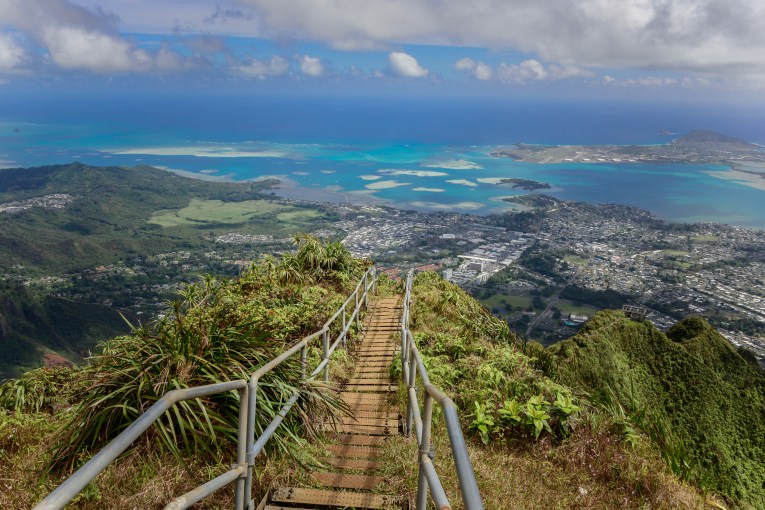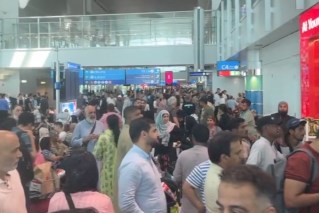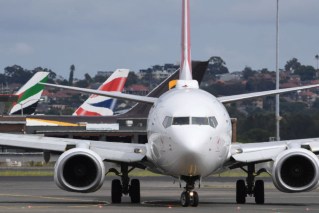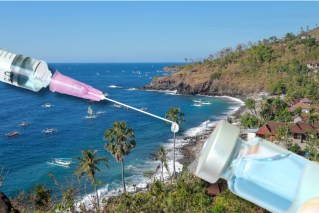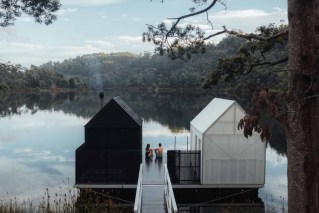Global pilot shortage hits Australia, with cancelled regional routes just the beginning
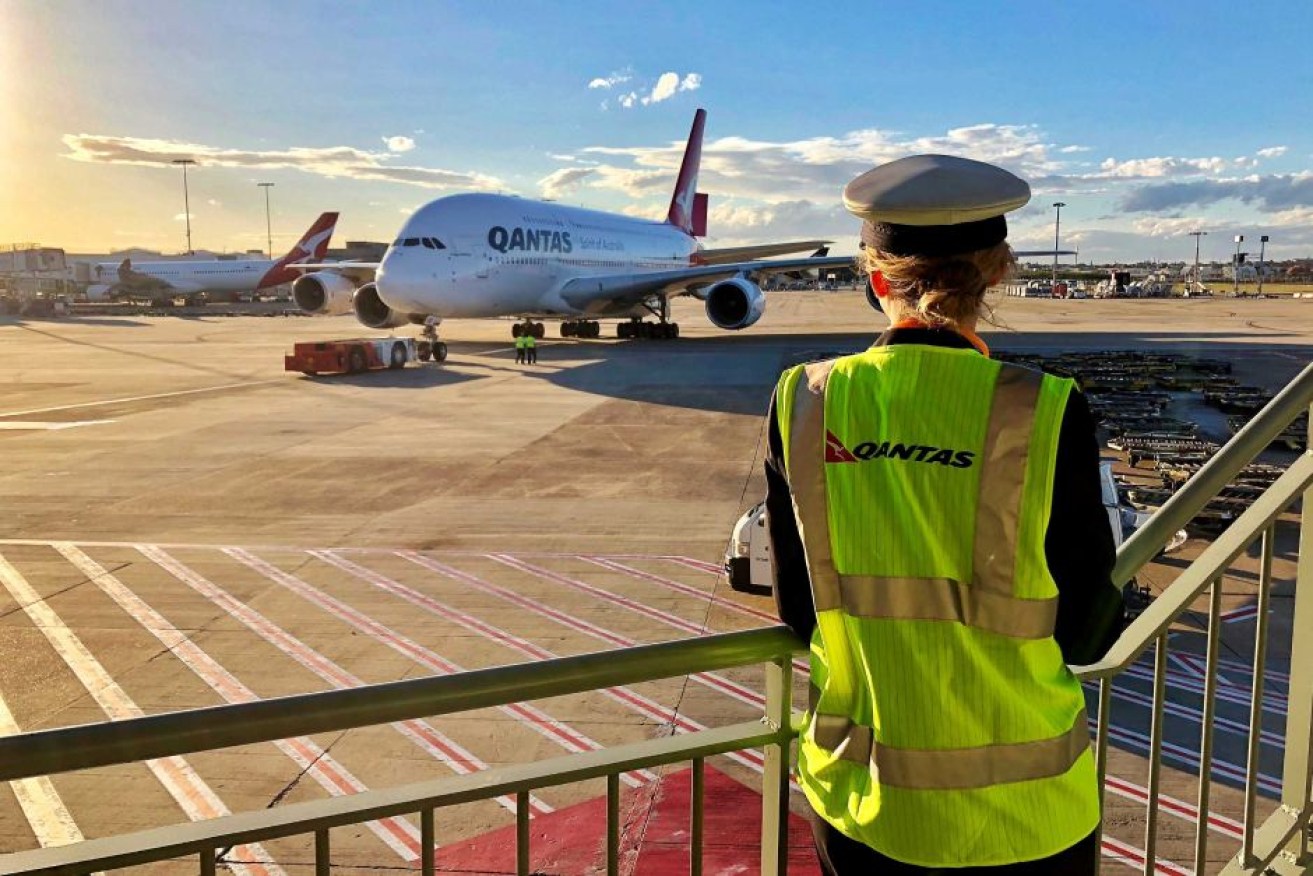
Qantas plans to recruit another 350 pilots by the end of the year. Photo: ABC/Andrew George
Airlines are having to cancel flights, and even entire routes, because there isn’t anyone available to fly the plane.
A total of 10,808 domestic flights were cancelled last year, according to the latest annual report from the Bureau of Infrastructure, Transport and Regional Economics — at a rate of 1.9 per cent, up from the long-term average of 1.4 per cent.
While it is hard to determine exactly how many of these cancellations were caused by a pilot shortage, analysts say the situation is set to worsen in one of the world’s fastest-growing industries.
The most recent statistics from Boeing predict over the next two decades that 640,000 new pilots will be needed to sustain the industry, with almost 40 per cent of those required in the Asia Pacific region.
In recent years, a growing trend has emerged of Australian pilots taking off for lucrative deals with overseas airlines, particularly in the Middle East and China.
It is a complex situation with nobody in the industry able to agree on how best to move forward, or even determine what exactly has caused the pilot drought.
Customers to suffer in ‘perfect storm’
At this stage, it is mostly regional carriers and smaller charter services being hit — but the impact is being felt across the community.
Just this weekend, the Carnarvon races in Western Australia’s north were cancelled when it was announced staff and jockeys could not get a pilot to charter them to the event.
It is a similar story in the Northern Territory where Chartair, a charter carrier that provides crucial services to remote areas, has had to permanently ground one of its planes.
Chartair CEO Douglas Hendry said the company was turning away at least $1 million in business each year.
“Traditionally you had pilots joining us for three to four years. It was like an apprenticeship,” he said.
“[But] we’ve seen junior pilots, who don’t really meet any of the minimum requirements that the airlines used to have, are now leaving us much sooner.”
Mr Hendry said the global demand of major airlines was driving the shortage, but in the end it was the smaller players in the industry — and ultimately customers — who were suffering.
“The Chinese carriers are looking to recruit hundreds of thousands of pilots over the next 15 to 20 years,” he said.
Pilot shortage impacting flying schools
For David Currey, who heads the Aero Club of WA training academy, the shortage means fewer pilot teachers.
“You must appreciate with pilot shortage it starts from the big boys — Qantas, Virgin — they start recruiting from the regionals, such as Skippers Alliance network, and they then come and they recruit from the flying schools,” he said.
It is a great deal of change in an already dynamic industry.

Aero Club of WA training academy chief David Currey is struggling to find pilot teachers. Photo: ABC/Briana Shepherd
The Aero Club runs out of Jandakot Airport, a general aviation hub in metropolitan Perth.
Now, China Southern Airlines has a pilot academy due to reopen at the airfield while a Singapore-owned pilot school has also applied to operate in the space.
“I believe that within the next year there’ll be a minimum of 70 extra instructor jobs being created at Jandakot Airport,” Mr Currey said.
“[It’s] a demand that will be difficult to fill.”
Qantas, Virgin accused of ‘rapacious plundering’
Earlier this month Regional Airlines — also known as Rex — issued a statement to its customers warning of potential cancellations due to a “critical pilot shortage”.
“Rex is not able to have its usual contingent of stand-by pilots rostered for duty,” chief operating officer Neville Howell said.
“Consequently any last-minute sick leave may result in flights being cancelled or combined with other routes.”
Ten years ago Rex began its own training school, the Australian Airline Pilot Academy, in an effort to increase its own pilot numbers.
But Mr Howell said it was not enough to “stave off Qantas and Virgin Australia’s rapacious plundering of Rex’s pilot pool”.
“In the past two years, these two airlines collectively have poached 17 per cent and 56 per cent of Rex’s first officer and captain establishment respectively,” he said in the statement.
“These two airlines are causing widespread chaos and disruptions to regional air travel by their selfish and irresponsible actions.”
A Qantas spokesperson responded, stating that it was “natural to see some movement between airlines from people seeking advancement, just like in every other industry”.
“No Australian airline invests more in training pilots than the Qantas Group, and we’ve been doing that for almost 100 years.”
Qantas steps up pilot recruitment
The Qantas Group, which includes Qantas and Qantas Link, is in the midst of the biggest training and recruitment drive in the company’s history.
From about 2009, the main airline initiated a pilot hiring freeze — and it went on to last seven years.
But the Qantas Group has hired more than 600 new pilots from Australia since 2016, with plans to recruit an additional 350 by the end of the year.
The airline currently sources its pilots from a mix of flight schools, general aviation, the military and other commercial airlines.
Qantas has also been working with the federal government to bring in a limited amount of foreign pilots and simulator instructors on extended skilled worker visas.
The move has angered many who believe Qantas, as an industry leader, should be investing in Australian pilots instead.
But the airline in response has pointed to a $20 million commitment towards opening its pilot training academy by 2019.
The Qantas Group Pilot Academy was announced earlier this year and, of the more than 60 regional cities that put forward proposals, nine made the first cut.
The shortlist includes: Busselton, WA; Alice Springs, NT; Dubbo, NSW; Tamworth, NSW; Mackay, QLD; Toowoomba, QLD; Bendigo, VIC and Launceston, TAS.
Qantas will announce the winning location for the school within the next month or so, once it has visited each city.
More female pilots a priority

Arika Maloney says female pilots are starting to challenge the male stereotype. Photo: ABC, Andrew George.
In its first year of operation, Qantas wants to put 100 new recruits through the academy before eventually working up to 500 students annually.
And with women making up just 3 per cent of the global pilot workforce, the airline has made addressing the gender imbalance a priority.
Qantas second officer Arika Maloney, who has been with the airline for eight years, said she could already see things starting to change.
“It’s still male-dominated simply because, I guess, it’s a stereotype that’s not quite been broken as yet,” the 33-year-old from Adelaide said.
“There’s certainly no reason why a female can’t become a pilot.
“I think there has been a definite shift and we’re definitely seeing some more women within the Qantas Group and more females looking at aviation as a potential career.”
–ABC
